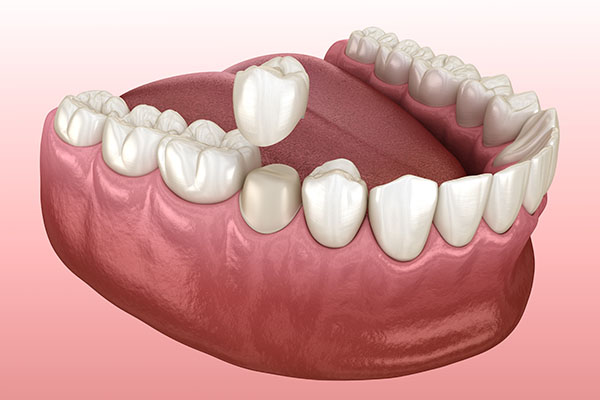When to seek treatment for an abscess
A tooth is said to be abscessed when a pocket of pus forms due to a bacterial infection. Patients who exhibit symptoms of an abscess should see a dental professional.
Abscess symptoms
People experiencing swelling of the face and fever or difficulty breathing or swallowing should seek immediate medical treatment at a general dentist's office or emergency room. If these symptoms are not present but other symptoms are, the patient should schedule an appointment with a dentist:
- Toothache with severe, lasting, and throbbing pain that may radiate to the neck, ear, or jawbone
- The abrupt occurrence of foul-smelling and -tasting salty fluid in the mouth that may be accompanied by pain relief
- Sensitivity to heat and cold
- Lymph nodes under the jaw or in the neck becoming tender and swollen
- Painful chewing or biting
Potential consequences of not receiving treatment for a dental abscess
Tooth abscesses will not resolve without treatment. The pain may be temporarily relieved if the abscess ruptures, but treatment is still necessary to avoid potential reoccurrence or spread of the infection. It is possible for the infection that causes an abscess to spread throughout the body, causing sepsis, which can be a life-threatening condition. The risk of sepsis is higher for people with weakened or suppressed immune systems.
How to avoid a dental abscess
Abscesses are caused by bacteria growth in the pulp of the teeth. When a tooth has a cavity, chip, or crack, bacteria can enter the inside of the tooth, where the nerves, blood vessels, and connective tissue is found. People who eat a diet high in sugar, experience frequent dry mouth, or have poor dental hygiene habits are at higher risk for dental abscesses.
Regular dental care
The key to preventing a dental abscess is to lower the risk of tooth decay. One of the most effective means of accomplishing this is to visit a general dentist regularly for exams and cleanings.
Fluoride products
Regular use of fluoride products can be beneficial. Potential options include drinking fluoridated water, using a fluoride mouth rinse, and brushing with a fluoride toothpaste.
Good oral hygiene
Dentists recommend brushing the teeth twice a day, replacing the toothbrush every three to four months, and flossing daily. Dentists often make oral hygiene recommendations as part of regular dental exams.
Diet modification
Dietary changes can be helpful for some people. It is recommended to eat a healthy diet that is low in sugar and to eat fewer snacks between meals.
Conclusion
Taking steps to prevent tooth decay can help many people avoid the potential complications of a dental abscess. However, because an untreated abscess can pose serious health risks, anyone who has associated symptoms should seek prompt treatment from a general dentist or medical professional.
Request an appointment or call Alexandria Old Town Dental at 703-763-1078 for an appointment in our Alexandria office.
Related Posts
Regular visits to a general dentist are essential for maintaining optimal oral health. A general dentist is responsible for routine check-ups and cleanings and provides a wide range of services to prevent, diagnose, and treat various dental issues. From preventive care to restorative procedures, a general dentist plays a crucial role in ensuring your teeth,…
Typing dentist near me in your search box can give you a great start. Getting comprehensive oral care from the right dental care professional is the goal. A provider near you will give you easier access to necessary dental treatments. Entering dentist near me in your online search can give you an advantage in your…
General dentists use bonding to help repair damaged teeth. What is bonding, and how is it used to repair teeth? Keep reading for an overview of what bonding is and why it is used as a treatment method. This type of procedure is very useful for many different dental issues. Your dentist will be able to…


